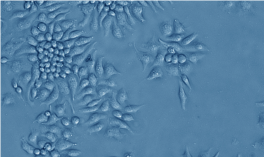The recent announcement that Dr. Michael Kaplitt has been awarded a three-year, $9 million grant to study Parkinson’s disease is the latest in a series of funding awards that are fueling innovation at Weill Cornell Medicine Neurological Surgery. Dr. Kaplitt’s grant, from the Aligning Sciences Across Parkinson’s (ASAP) initiative, will put him at the helm of an ambitious and innovative multi-institutional collaborative effort to study how abnormal protein aggregates may spread from the gut to the brain to drive the early stages of Parkinson’s disease. (Read the news about the $9 million grant.)
The grant comes on the heels of the renewal of a three-year, $2.25 million grant from the JPB Foundation to fund Dr. Kaplitt’s investigational use of gene therapy for Parkinson’s disease. Dr. Kaplitt, a longtime leader in developing cutting-edge surgical therapies for movement disorders, was the first in the world to test gene therapy for Parkinson’s disease in 2003 and continues to pursue innovative approaches to treating the disorder.
Dr. Roberta Marongiu, assistant professor of neuroscience in neurological surgery, is part of the team of principal investigators awarded the ASAP initiative grant and lead by Dr. Kaplitt. Her group will study the menopausal effects on the gut-brain connection in Parkinson’s disease. Independently, Dr. Marongiu has been awarded a $400,000 grant from the National Institute of Aging to study the influence of perimenopause as a neurological transition state that triggers Alzheimer's disease onset and accelerates disease progression.
Other recent grants will fund ground-breaking work across a wide spectrum of neurosurgical disorders, including:
Dr. Nadia Dahmane, whose work is focused on the embryonic development of brain tumors in children, was awarded an R01 research grant from the National Institute of Health (NIH)/National Institute for Neurological Disorders and Stroke (NINDS) to investigate the genetic and epigenetic mechanisms controlling neuronal identity. Dr. Dahmane and colleagues Dr. Benjamin Garcia at the University of Pennsylvania and Dr. Christopher Mason at Weill Cornell Medicine will receive $2.5 million over five years to leverage high-throughput approaches to uncover the mechanisms controlling cellular identity in the developing brain in hopes that this knowledge will one day translate to a cure for brain tumors.
Dr. Babacar Cisse, whose research focuses on adult brain tumors, received a three-year, $700,000 grant from the Department of Defense to study the role of transcription factors in glioma-associated microglia as well as a three-year, $400,000 award to support his novel work; he will first investigate the normal development and function of microglia from embryonic to adult stages, followed by the use of mouse models to investigate the disruptions in their function known to exist in gliomas.
Dr. Michael Virk will be the site PI at Weill Cornell Medicine on a multi-center investigation into how epidural electrical stimulation (EES) may be used to restore or improve hand and arm function in those with cervical myelopathy or traumatic spinal cord injuries. Jason Carmel, MD, PhD, of Columbia University and Noam Harel, MD, PhD, of Mount Sinai Hospital received this $2.5 million, three-year NIH/NINDS RO1 grant. Trauma and cervical myelopathy are the most common causes of acute and chronic spina cord injury, and EES holds the promise of restoring hand function after these devastating injuries.
These significant grants will propel new research into debilitating brain and spine conditions that promise new hope for future patients as these investigations are translated into new treatment options.


